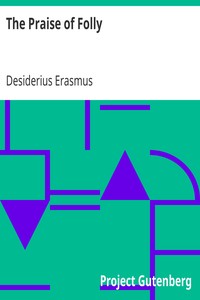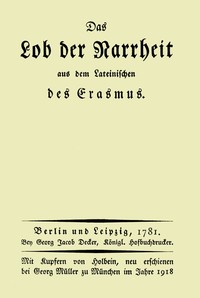Downloads & Free Reading Options - Results
Fats That Heal%2c Fats That Kill by Udo Erasmus
Read "Fats That Heal%2c Fats That Kill" by Udo Erasmus through these free online access and download options.
Books Results
Source: The Internet Archive
The internet Archive Search Results
Available books for downloads and borrow from The internet Archive
1Fats That Heal, Fats That Kill
By Erasmus, Udo
“Fats That Heal, Fats That Kill” Metadata:
- Title: Fats That Heal, Fats That Kill
- Author: Erasmus, Udo
- Language: English
Edition Identifiers:
- Internet Archive ID: fatsthathealfats0000eras
Downloads Information:
The book is available for download in "texts" format, the size of the file-s is: 928.80 Mbs, the file-s for this book were downloaded 949 times, the file-s went public at Thu Jun 03 2021.
Available formats:
ACS Encrypted PDF - Cloth Cover Detection Log - DjVuTXT - Djvu XML - Dublin Core - EPUB - Item Tile - JPEG Thumb - JSON - LCP Encrypted EPUB - LCP Encrypted PDF - Log - MARC - MARC Binary - Metadata - OCR Page Index - OCR Search Text - PNG - Page Numbers JSON - Scandata - Single Page Original JP2 Tar - Single Page Processed JP2 ZIP - Text PDF - Title Page Detection Log - chOCR - hOCR -
Related Links:
- Whefi.com: Download
- Whefi.com: Review - Coverage
- Internet Archive: Details
- Internet Archive Link: Downloads
Online Marketplaces
Find Fats That Heal, Fats That Kill at online marketplaces:
- Amazon: Audiable, Kindle and printed editions.
- Ebay: New & used books.
Source: LibriVox
LibriVox Search Results
Available audio books for downloads from LibriVox
1Praise of Folly
By Desiderius Erasmus

The Praise of Folly (Greek title: Morias Enkomion (Μωρίας Εγκώμιον), Latin: Stultitiae Laus, sometimes translated as In Praise of Folly, Dutch title: Lof der Zotheid) is a satirical essay written in 1509 by Desiderius Erasmus of Rotterdam (1466/69-1536). It is considered one of the most influential works of literature in Western civilization and one of the catalysts of the Protestant Reformation.<BR><BR>It starts off with a satirical learned encomium after the manner of the Greek satirist Lucian, a piece of virtuoso foolery; it then takes a darker tone in a series of orations, as Folly praises self-deception and madness and moves to a satirical examination of pious but superstitious abuses of Catholic doctrine and corrupt practices in parts of the Roman Catholic Church—to which Erasmus was ever faithful—and the folly of pedants (including Erasmus himself). Erasmus had recently returned, disappointed, from Rome, where he had turned down offers of advancement in the curia, and Folly increasingly takes on Erasmus' own chastising voice. The essay ends with a straightforward statement of Christian ideals.<BR><BR>The essay was hugely popular, to Erasmus' astonishment and sometimes his dismay. Before Erasmus' death it had already passed into numerous editions and had been translated into French and German. An English edition soon followed. It influenced teaching of rhetoric during the later sixteenth century. It was put on the Index of forbidden books by the Council in Trent in 1559. (Summary adapted from Wikipedia)
“Praise of Folly” Metadata:
- Title: Praise of Folly
- Author: Desiderius Erasmus
- Language: English
- Publish Date: 1688
Edition Specifications:
- Format: Audio
- Number of Sections: 11
- Total Time: 3:42:49
Edition Identifiers:
- libriVox ID: 2628
Links and information:
Online Access
Download the Audio Book:
- File Name: folly_erasmus_0811_librivox
- File Format: zip
- Total Time: 3:42:49
- Download Link: Download link
Online Marketplaces
Find Praise of Folly at online marketplaces:
- Amazon: Audiable, Kindle and printed editions.
- Ebay: New & used books.
2Colloquia Familiaria
By Desiderius Erasmus
This collection of Latin dialogues, first published published in 1518 but greatly expanded until 1533, is among the most pleasant reading in the language for students and experts alike. Useful phrases, interesting narratives, humorous character sketches, and social criticism are all to be found here, written in a style rarely matched which prompted the 18th-century translator Nathan Bailey to praise Erasmus "as well for the Usefulness of the Matter of his Colloquies, as the Pleasantness of Style, and Elegancy of the Latin." - Summary by Felipe Vogel
“Colloquia Familiaria” Metadata:
- Title: Colloquia Familiaria
- Author: Desiderius Erasmus
- Language: Latin - latine, lingua latina
- Publish Date: 1892
Edition Specifications:
- Format: Audio
- Number of Sections: 64
Edition Identifiers:
- libriVox ID: 9247
Links and information:
- LibriVox Link: LibriVox
- Text Source: Org/details/ErasmiColloquiaFamiliariaEtEncomiumMoriae
- Wikipedia Link: Wikipedia
- Number of Sections: 64 sections
Online Access
Download the Audio Book:
Online Marketplaces
Find Colloquia Familiaria at online marketplaces:
- Amazon: Audiable, Kindle and printed editions.
- Ebay: New & used books.
3Lob der Narrheit
By Desiderius Erasmus

Hinter dem tollen Wirrwarr menschlichen Treibens, hinter den Mängeln, Schwächen, Fehlern und Untugenden sieht Erasmus die Thorheit als etwas nur Allzumenschliches an. Sie ist ihm dasjenige geistige Element, das dem Erdendasein überhaupt erst Reiz und Wert verleiht. Das Horazische Dulce est desipere in loco ist hier zu einem Prinzip der Weltanschauung erhoben und wird halb im Ernst, halb im Scherz von einer lächelnden Lebensphilosophie als Vademecum für jeden Erdenpilger gepriesen. Daß der geistreiche und seine Thesen mit unzähligen gelehrten Zitaten erhärtende Autor sich dabei nicht immer konsequent bleibt und mitunter wie z. B. in seiner Polemik gegen Kirche und Theologie aus dem Ton und der Rolle eines Lobredners der Thorheit fällt, darf weiter nicht verwunderlich erscheinen. - Zusammenfassung aus dem Vorwort
“Lob der Narrheit” Metadata:
- Title: Lob der Narrheit
- Author: Desiderius Erasmus
- Language: German - Deutsch
- Publish Date: 1918
Edition Specifications:
- Format: Audio
- Number of Sections: 17
- Total Time: 04:37:39
Edition Identifiers:
- libriVox ID: 9318
Links and information:
Online Access
Download the Audio Book:
- File Name: lob_der_narrheit_1503_librivox
- File Format: zip
- Total Time: 04:37:39
- Download Link: Download link
Online Marketplaces
Find Lob der Narrheit at online marketplaces:
- Amazon: Audiable, Kindle and printed editions.
- Ebay: New & used books.
4Enchiridion Militis Christiani (English)
By Desiderius Erasmus
One of the most influential works by the medieval scholar Erasmus of Rotterdam, the <i>Enchiridion Militis Christiani</i> (called in English The Manual of the Christian Knight or The Handbook of the Christian Soldier) was originally written in Latin in 1501. William Tyndale translated it into English in 1533, and it is this translation which is presented here. The aim of the book is especially to emphasize the difference between a true religion of the heart and an outward, formal religion of observances. Written in an age of formal righteousness, this book directs the conscience of the individual straight back to the sources of all Christian living, to the plain teaching of Jesus and the plain argument of common sense. -Summary by Devorah Allen
“Enchiridion Militis Christiani (English)” Metadata:
- Title: ➤ Enchiridion Militis Christiani (English)
- Author: Desiderius Erasmus
- Language: English
- Publish Date: 1905
Edition Specifications:
- Format: Audio
- Number of Sections: 19
- Total Time: 07:51:15
Edition Identifiers:
- libriVox ID: 20474
Links and information:
- LibriVox Link: LibriVox
- Text Source: Org/details/gtu_32400000311310/
- Number of Sections: 19 sections
Online Access
Download the Audio Book:
- File Name: enchiridion_2508_librivox
- File Format: zip
- Total Time: 07:51:15
- Download Link: Download link
Online Marketplaces
Find Enchiridion Militis Christiani (English) at online marketplaces:
- Amazon: Audiable, Kindle and printed editions.
- Ebay: New & used books.
5Ecclesiastes
By Desiderius Erasmus
Ecclesiastes or, the preacher. An essay on the duties of a public religious instructor; chiefly taken from a Latin treatise on this subject by Erasmus. - Summary by Subtitle
“Ecclesiastes” Metadata:
- Title: Ecclesiastes
- Author: Desiderius Erasmus
- Language: English
- Publish Date: 1797
Edition Specifications:
- Format: Audio
- Number of Sections: 5
- Total Time: 01:11:49
Edition Identifiers:
- libriVox ID: 21538
Links and information:
- LibriVox Link: LibriVox
- Text Source: Org/details/bim_eighteenth-century_ecclesiastes-or-the-pr_erasmus-desiderius_1797
- Wikipedia Link: Wikipedia
- Number of Sections: 5 sections
Online Access
Download the Audio Book:
- File Name: ecclesiastes_2504_librivox
- File Format: zip
- Total Time: 01:11:49
- Download Link: Download link
Online Marketplaces
Find Ecclesiastes at online marketplaces:
- Amazon: Audiable, Kindle and printed editions.
- Ebay: New & used books.
Buy “Fats That Heal%2c Fats That Kill” online:
Shop for “Fats That Heal%2c Fats That Kill” on popular online marketplaces.
- Ebay: New and used books.